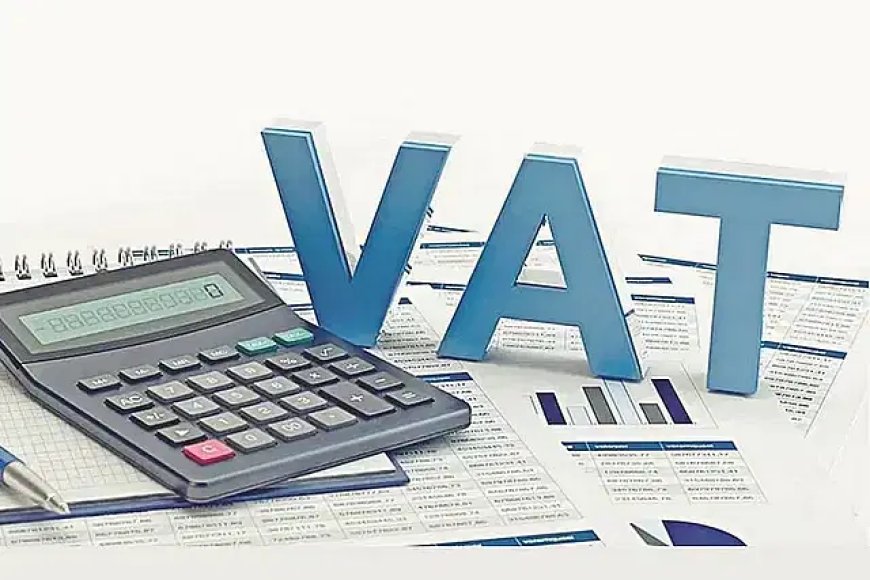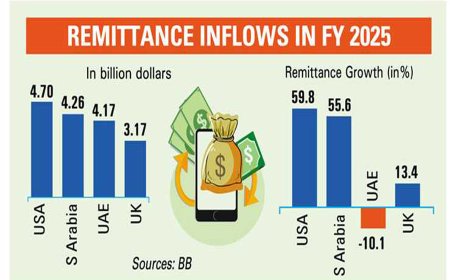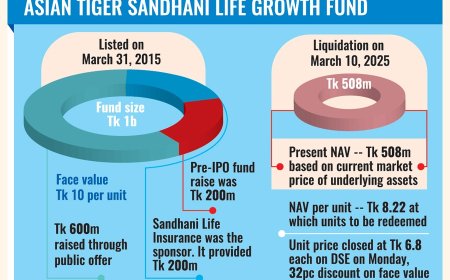The prices of different products increase because of the inflated VAT
The prices of different products increase because of the inflated VAT

Jawad Tajwar purchased clothes from a branded store in Uttara, the capital, last Friday. The total cost was Tk 1,577, but he ended up paying Tk 1,734 due to an additional Tk 157 charged as Value Added Tax (VAT).
On January 9, the government raised the VAT rate on both branded and non-branded clothing from 7.5% to 15%. However, after requests from traders, the rate was reduced to 10% for branded clothing, while the VAT on non-branded clothing remained at 7.5%. This resulted in an extra 2.5% VAT on branded clothing, causing Jawad Tajwar to pay an additional Tk 39 for his purchase.
Soumik Das, former vice president of Fashion Udyog, a domestic clothing brand association, told Prothom Alo that the new VAT rate has further depressed sales. Consumers had already been cutting back on clothing purchases due to high inflation. The government's revised VAT structure has raised concerns over price hikes in various goods and services, such as imported fruits, tissues, cooking gas, sweets, biscuits, fruit juices, soft drinks, tomato ketchup, paints, movie tickets, and spectacle frames.
Additional VAT has already been collected in several sectors. While some products have not yet entered the market, traders warn that prices will rise once they do. Some businesses are still negotiating with the National Board of Revenue (NBR), hoping to see the extra VAT removed. For example, VAT on products like machine-made biscuits, cakes, pickles, chutneys, tomato paste, ketchup, and sauces—along with processed mango, pineapple, guava, and banana pulp—has increased from 5% to 15%. Additionally, the supplementary duty on fruit juices and drinks has gone up from 10% to 15%. Entrepreneurs in this sector met with the NBR on January 23. After the meeting, PRAN-RFL Group Chairman Ahsan Khan Chowdhury told reporters that due to the VAT increase, the price of biscuits and juices would rise. For example, a 5-taka biscuit would cost 7 taka, a 10-taka biscuit would rise to 13 taka, and a 20-taka juice would increase to 25 taka. However, he added, “Although VAT has increased, we have not raised our prices yet. For now, our company is absorbing the additional VAT costs as a subsidy. We remain hopeful that the government will reconsider and remove this burden on consumers. Therefore, we plan to wait another week before adjusting prices.”
On January 9, the government raised VAT and supplementary duties on over 100 goods and services. However, after public backlash, the VAT on eight categories, including medicines, mobile calls, internet usage, restaurant food, clothing, sweets, non-AC hotels, and vehicle garages, was either reverted to its previous level or slightly reduced on January 22. Nonetheless, the VAT and supplementary duties on most other goods remain unchanged.
The government's goal was to raise an additional Tk 120 billion in revenue through these tax hikes. Government advisors argued that the tax increases would not heavily burden consumers, as essential goods were mostly exempt from additional duties and taxes. However, economists criticized the timing, saying that raising taxes amid high inflation was poorly timed. They suggested the government should have waited until the next budget and focused on increasing revenue collection from the wealthy instead.
Fruit Prices Soar
Imported fruits, including apples, pears, oranges, and grapes, already had high taxes. On January 9, the government raised the supplementary duty on fruit imports from 20% to 30%. This hike has significantly increased the cost of importing fruits, with the total tax on oranges rising from Tk 101-102 per kg to Tk 116-117 per kg.
In the last few days, fruit prices have increased noticeably in Dhaka markets. Maqbul Hossain, a street vendor near the Topkhana Road metro rail station, shared that the wholesale price of a 14-kg carton of oranges rose by Tk 200 in two weeks. Consequently, he is now selling oranges at Tk 320 per kg, up by Tk 20 per kg.
Elias Hossain, a resident of Mirpur, expressed his frustration while shopping: “Now, I can only afford fruit for my children. I can't even eat it myself. There's no choice but to cut back further.” According to NBR data, 1,696 tonnes of oranges were imported in the two weeks following the duty increase, generating Tk 196.8 million in revenue. The additional customs duty has contributed an extra Tk 250 million in revenue.
Similarly, the customs duty on raisins increased by Tk 42 per kg, from Tk 291 to Tk 333, following the supplementary duty hike.
Paint Prices Rise
The government has raised the supplementary duty on paints at the supply level from 5% to 10%, which has led to a 4-5% increase in retail prices. A visit to Karwan Bazar revealed that a 3.6-litre jar of a popular paint brand now costs Tk 1,900, an increase of Tk 100.
Saddam Paint and Hardware manager Md Shihab confirmed that the price hike took effect two days ago.
Meanwhile, the Bangladesh Energy Regulatory Commission (BERC) raised the price of 12-kg LPG cylinders by Tk 4 on January 14, bringing the price to Tk 1,459. However, some LPG suppliers have been charging more, citing the added VAT rate.
Golam Hakkani, an LPG supplier in Chattogram, told Prothom Alo that prices vary across companies, with some raising the price of LPG cylinders by Tk 50 due to the increased VAT.
Upcoming Price Hikes
The VAT rate on plastic spectacle frames, metal frames, and similar products has been increased from 5% to 15%. Traders warned that prices for these items would increase soon. Md Maruf, the owner of King Opticles in Dhaka, mentioned that the lowest price for a spectacle frame at his shop was Tk 600, and would rise by Tk 50 with the added VAT.
Traders also anticipate higher costs for cinema tickets, tissue papers, tailoring services, and other goods and services in the near future.
Indirect Effects
The increase in duties and taxes on raw materials and turnover tax could result in indirect price hikes. For example, VAT has been raised on goods like equipment for steel industries, electric transformers, rubber processing oil, and bitumen.
Additionally, the threshold for turnover tax has been reduced from Tk 5 million to Tk 3 million. This means that more businesses will now be subject to turnover tax, which stands at 4% for sales up to Tk 5 million.
Khondaker Golam Moazzem, research director at the Centre for Policy Dialogue (CPD), warned that the VAT increases are particularly affecting lower-middle and middle-class people in cities. He noted that the government's approach might have been convenient for revenue collection but could further harm the already struggling middle class. Moazzem suggested that a more effective solution would have been to increase tax collection from the wealthy.
What's Your Reaction?





















































































